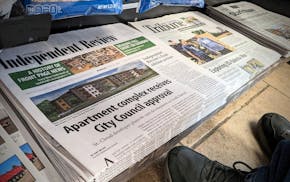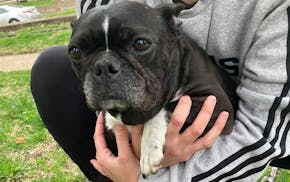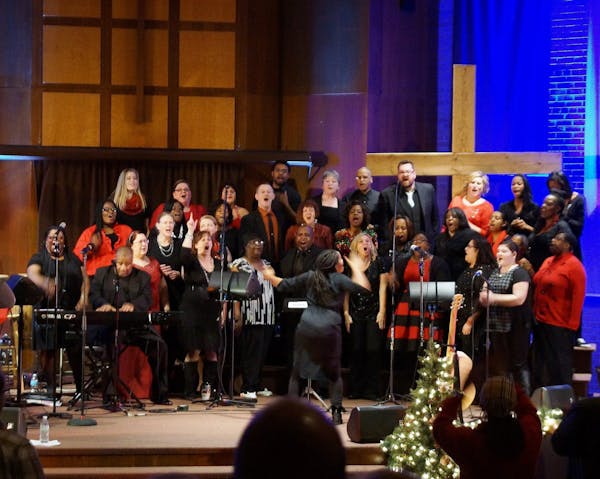In the 1980s, Rosemount resident Susan Follett was up late one night and saw a documentary about the voting-rights march from Selma, Ala. to the State Capitol in Montgomery.
"The images were horrifying and shocking," she said. "I remember the fire hoses and the dogs and the police brutality and the whole thing. It was just like images assaulting me. I couldn't believe what I was seeing. My immediate reaction was, 'Why didn't I know, and why didn't I do something to stop this?' "
Although Follett grew up in Meridian, Miss., in the 1960s, she was shielded from much of the violent brutality and fear of the time period. In 2000, she started doing interviews with civil rights movement veterans, historians and Mississippi residents.
"I started to uncover not only the answers to why I didn't know, but also just a lot of people's stories," she said.
Follett wove those stories into a piece of historical fiction that focused on 1964's Freedom Summer, and published it in June. Follett will discuss her book, "The Fog Machine," on Feb. 17 at the Rosemount Community Center during the presentation "Stories from Civil Rights History, Then and Now."
Gail Falk, a Freedom Summer participant from Plainfield, Vt., and Jason Sole, an assistant professor at Metropolitan State University, will also speak at the event.
Falk called Follett's book "very true to the spirit" of the time period. Falk was one of the college students who journeyed south to help civil rights workers who were trying to register blacks to vote.
During that time, said Falk, the violence and voter disenfranchisement "wasn't really being reported in the news." She said the invitation of northern college students had been a strategic decision to draw attention to the situation.
A week before she arrived, civil rights workers James Chaney, Andrew Goodman, and Michael Schwerner were murdered. Media attention intensified.
"All of a sudden, the country confronted what was happening in Mississippi," she said "It couldn't be ignored."
Falk stayed in Meridian until January and then joined a group of people starting a small newspaper, The Southern Courier. She said the paper covered stories not reported in the mainstream press and showed positive images of blacks.
Disparities continue
Voting rights are of special interest to Sole, 36, an assistant professor at Metro State.
He's a former drug dealer, gang member and three-time felon. Sole accepted two decades of probation for his drug-related crime and won't be able to vote until 2026.
"Many people, including myself, don't have that privilege," Sole said. "I gave up a lot in order to be free."
Sole, who is finishing his doctoral degree in public safety with an emphasis on criminal justice, lectures around the country.
As a 2013 Bush Fellow, he has worked to reduce recidivism in Minnesota. He authored the book "From Prison to Ph.D.: A Memoir of Hope, Resilience, and Second Chances."
In addition to advocating for voter restoration, Sole also often speaks on the disproportionate numbers of black students who end up expelled or suspended from school. A 2010 report by the Minnesota Department of Education found that black students are 5.9 times more likely to be suspended and 3.8 times more likely to be expelled than their white peers.
"There's a direct correlation between those who are kicked out of school and those who end up in the criminal justice system," he said.
Follett, who will be visiting local high school classrooms this week, also commented on the disparities.
"Some of the things that were going on in the '60s are still happening but they've taken different shape and form, which makes them, in some ways, a little less easy to recognize and identify," she said. "I tell students when I speak to them that not talking about things perpetuates divides while knowing our history makes it harder for us to have our rights taken away."
The event will also feature the music of Soulful Sounds Gospel Choir.
The choir will sing civil rights era songs, such as "Wade in the Water," "Ain't Gonna Let Nobody Turn Me Around," "We Shall Not Be Moved," and "We Shall Overcome."
Liz Rolfsmeier is a Twin Cities-based freelance writer. She can be reached at lizannrolfsmeier@gmail.com.

Former diversity worker sues University of Minnesota after firing over swastika photo

As longtime Hutchinson, Litchfield papers close, 2 newspapers launch to take their place

In Grand Rapids, Itasca Pride is planning its first event, but there is already pushback
Mother charged with fentanyl overdose death of her 8-month-old boy in Roseville hotel room

